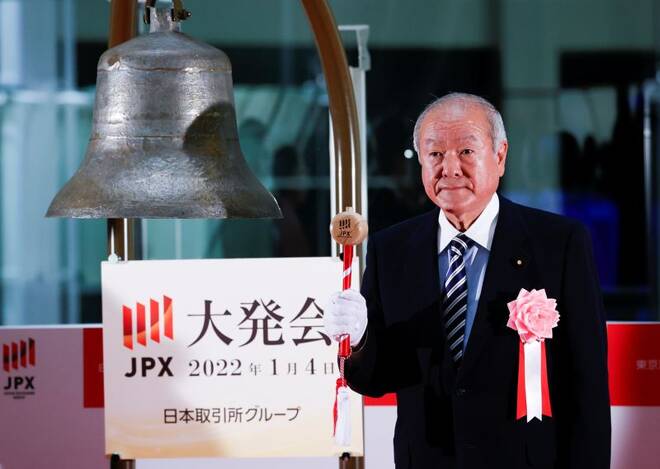Advertisement
Advertisement
Japan’s finance minister says addressing rising cost of living, as extra budget debated
By:
TOKYO (Reuters) - Japan's government will urgently and flexibly take steps to ease the pain of the surging cost of living to ensure the economy's recovery from COVID-induced doldrums, Finance Minister Shunichi Suzuki said on Wednesday.
By Tetsushi Kajimoto
TOKYO (Reuters) -Urgent steps will be taken to ease pain caused by the surging cost of living in Japan, and to help the economy recover from the ill-effects of COVID, Finance Minister Shunichi Suzuki said as he presented a supplementary budget to parliament.
Lawmakers began debating on Wednesday the proposed extra budget – worth 2.7 trillion yen ($21 billion) – to help households and small firms cope with high energy and food prices.
The government plans to spend 1.17 trillion yen of it on mitigating the effect of rising global oil prices. This will include subsidising gasoline wholesalers.
“Uncertainty about the outlook is rising, mainly because Russia’s invasion of Ukraine has destabilised crude oil and commodity prices,” Suzuki told the lower house of parliament.
“That could hamper the pace of economic recovery from the coronavirus.”
The supplementary budget also includes 1.52 trillion yen for budget reserves that the government will be able to spend later as necessary.
Suzuki said he would encourage firms to smoothly pass on rising costs and raise wages to generate a virtuous cycle of growth that will help to ensure Japan’s economy recovers from the impact of the pandemic.
The extra budget will be funded by bond sales, which could further strain a public debt that is already more than twice as large as annual economic output.
To prevent the huge debt from becoming unmanageable, Suzuki’s fiscal advisory panel urged the government to stick to its aim of achieving a primary budget surplus, which excludes new bond sales and debt servicing, by the end of fiscal year in March 2026.
“As a trade deficit may take hold from now on, market confidence in the yen and the fiscal situation will be called into question more than ever,” the panel said in its fiscal reform recommendations.
“If the primary balance target takes a step backward, the risk is large for Japan to lose market trust.”
The finance ministry wants the government to include the balanced budget target in its mid-year policy roadmap, but there are divisions over the plan within the ruling Liberal Democratic Party (LDP).
($1 = 127.0200 yen)
(Reporting by Tetsushi Kajimoto; Editing by Simon Cameron-Moore)
About the Author
Reuterscontributor
Reuters, the news and media division of Thomson Reuters, is the world’s largest international multimedia news provider reaching more than one billion people every day. Reuters provides trusted business, financial, national, and international news to professionals via Thomson Reuters desktops, the world's media organizations, and directly to consumers at Reuters.com and via Reuters TV. Learn more about Thomson Reuters products:
Did you find this article useful?
Latest news and analysis
Advertisement
